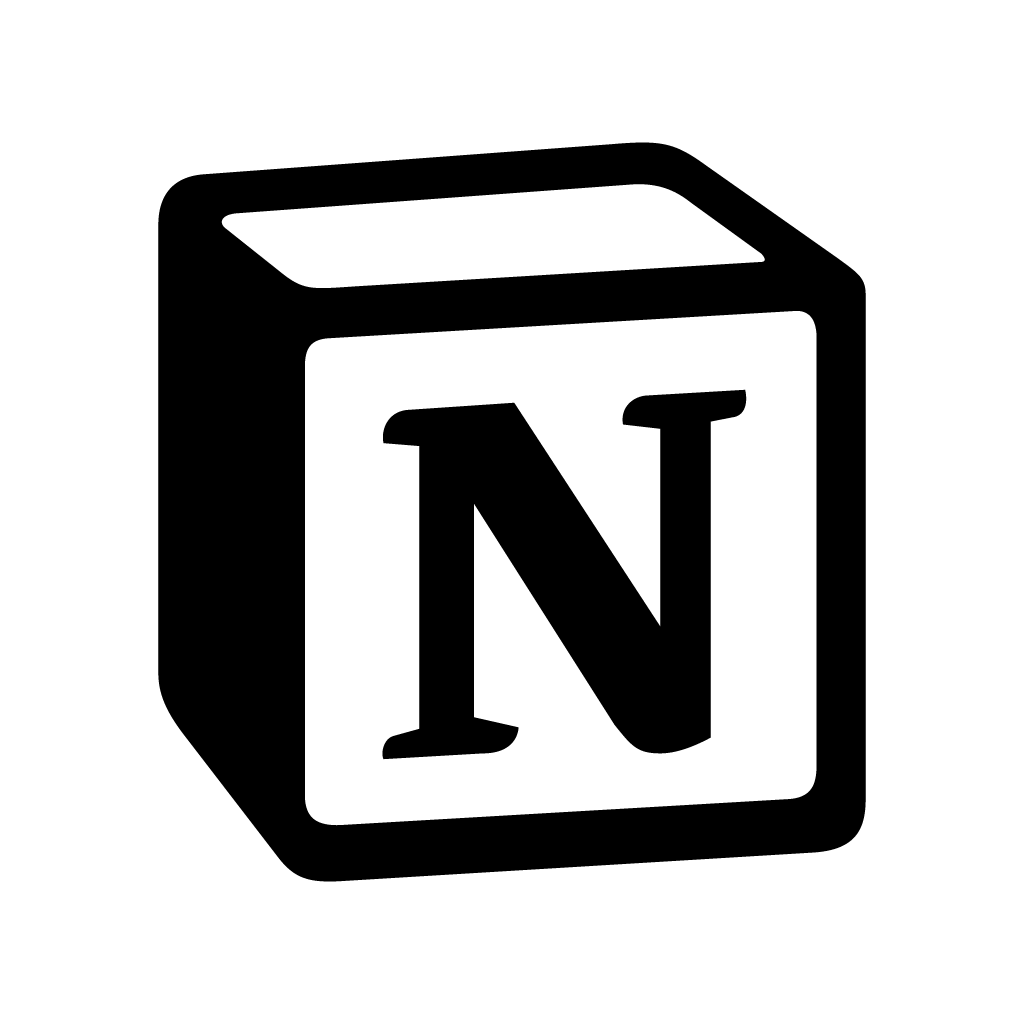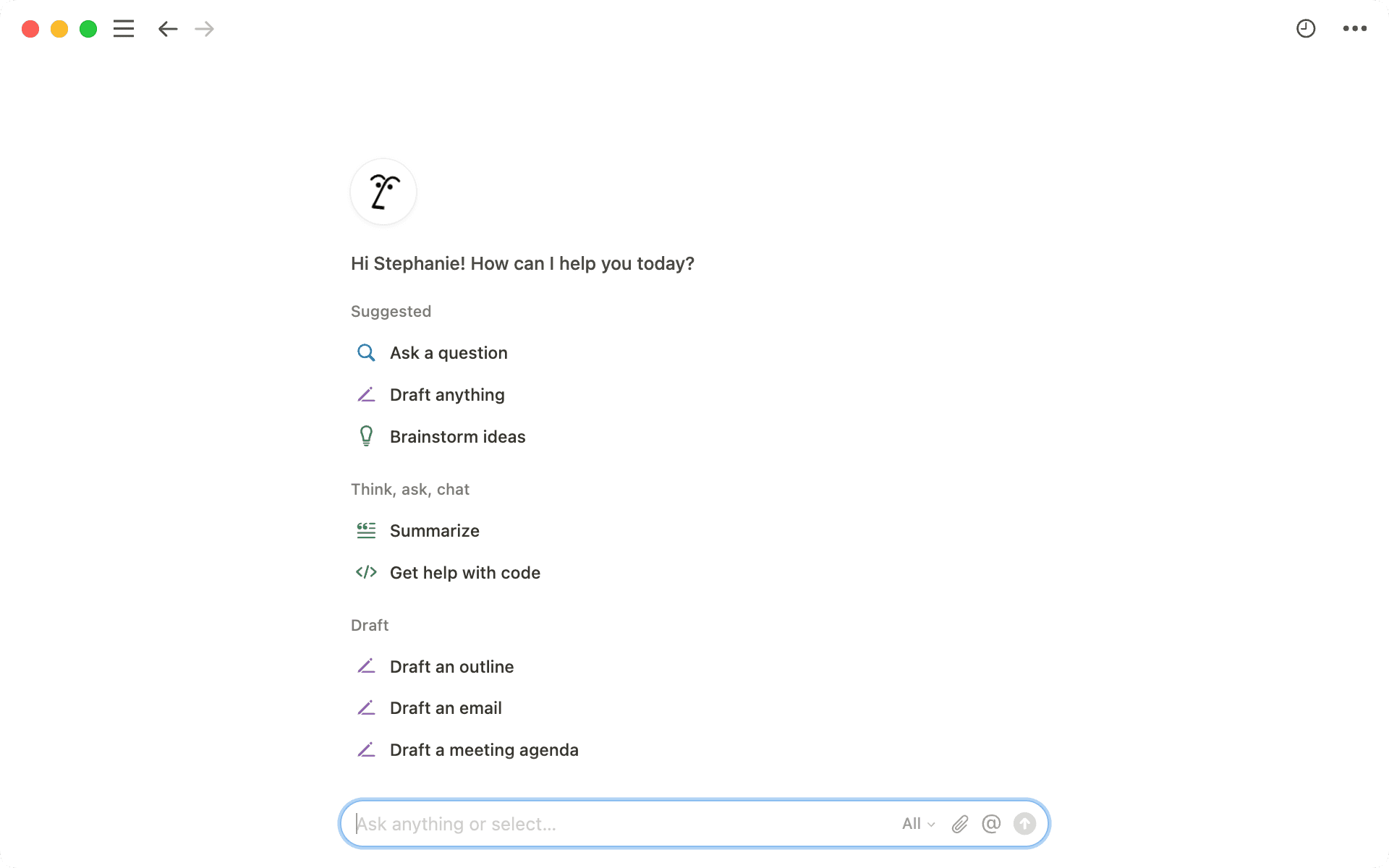
Notion AI: AI Writing Tools for Marketing Teams
AI Writing Tools for Marketing Teams
Notion AI transforms content workflows by embedding AI directly into collaborative workspaces, eliminating the fragmentation between content creation, data management, and team coordination. Unlike standalone writing tools, Notion AI leverages existing workspace content to generate contextually aware drafts, summaries, and insights that maintain brand consistency while accelerating content production.
Market Position & Maturity
Market Standing
Notion AI occupies a unique market position as an integrated workspace AI rather than a standalone writing tool, competing against both specialized AI writing platforms (Jasper, Copy.ai) and general-purpose tools (ChatGPT, Grammarly).
Company Maturity
The platform processes millions of daily queries with consistent 85% satisfaction rates for workspace-specific queries [11].
Growth Trajectory
The vendor introduced AI Autofill for database automation in 2023, launched Claude-powered Q&A with RAG in 2024, and added image/PDF analysis with cross-app connectors in 2025 [2][5][11][17].
Strategic Partnerships
Strategic partnerships with Anthropic (Claude integration) and major productivity platforms (Slack, Google Drive, HubSpot, Salesforce) strengthen market position through ecosystem integration rather than standalone functionality [2][11][16].
Longevity Assessment
Longevity assessment indicates strong viability through established market presence, consistent product development, and enterprise customer base.
Proof of Capabilities
Customer Evidence
Documented implementations include Osaka Gas (information search optimization), Remote.com (query efficiency), and dbt Labs (tool consolidation) [11].
Quantified Outcomes
Osaka Gas achieved a 35% reduction in time spent searching for information [11]. Remote.com saves an estimated 10 minutes per search across 300 daily queries, resulting in 50 hours of weekly productivity gains [11]. dbt Labs achieved $35k in annual savings by consolidating AI tools into Notion's ecosystem [11].
Market Validation
User adoption metrics indicate strong engagement with 2.7 AI queries per user daily across the platform's user base, while 82% of users confirm ≥5 minutes saved per interaction [11].
Reference Customers
Enterprise customer adoption across diverse industries including technology (dbt Labs), energy (Osaka Gas), and professional services (Remote.com) [11].
AI Technology
The platform employs Claude-powered RAG (Retrieval-Augmented Generation) for workspace-wide queries, enabling AI to scan Notion pages alongside connected applications like Slack and Google Drive [2][11].
Architecture
Integration architecture supports pre-built connectors for HubSpot, Salesforce, and major productivity tools, though with notable limitations.
Primary Competitors
Competing against specialized AI writing platforms (Jasper, Copy.ai) and general-purpose tools (ChatGPT, Grammarly).
Competitive Advantages
Primary competitive advantage lies in workspace integration depth that eliminates context switching between content creation, project management, and data analysis tools.
Market Positioning
Market positioning strategy emphasizes 'all-in-one workspace' benefits rather than superior AI capabilities in specific domains.
Win/Loss Scenarios
Win scenarios favor organizations already using Notion for collaboration, teams prioritizing workflow consolidation over specialized capabilities, and companies with structured content databases that benefit from AI autofill functionality.
Key Features

Pros & Cons
Use Cases
Integrations
Pricing
Featured In Articles
Discover top AI writing tools for marketing teams. Compare features, costs, and ROI for 2025.
How We Researched This Guide
About This Guide: This comprehensive analysis is based on extensive competitive intelligence and real-world implementation data from leading AI vendors. StayModern updates this guide quarterly to reflect market developments and vendor performance changes.
18+ verified sources per analysis including official documentation, customer reviews, analyst reports, and industry publications.
- • Vendor documentation & whitepapers
- • Customer testimonials & case studies
- • Third-party analyst assessments
- • Industry benchmarking reports
Standardized assessment framework across 8 key dimensions for objective comparison.
- • Technology capabilities & architecture
- • Market position & customer evidence
- • Implementation experience & support
- • Pricing value & competitive position
Research is refreshed every 90 days to capture market changes and new vendor capabilities.
- • New product releases & features
- • Market positioning changes
- • Customer feedback integration
- • Competitive landscape shifts
Every claim is source-linked with direct citations to original materials for verification.
- • Clickable citation links
- • Original source attribution
- • Date stamps for currency
- • Quality score validation
Analysis follows systematic research protocols with consistent evaluation frameworks.
- • Standardized assessment criteria
- • Multi-source verification process
- • Consistent evaluation methodology
- • Quality assurance protocols
Buyer-focused analysis with transparent methodology and factual accuracy commitment.
- • Objective comparative analysis
- • Transparent research methodology
- • Factual accuracy commitment
- • Continuous quality improvement
Quality Commitment: If you find any inaccuracies in our analysis on this page, please contact us at research@staymodern.ai. We're committed to maintaining the highest standards of research integrity and will investigate and correct any issues promptly.